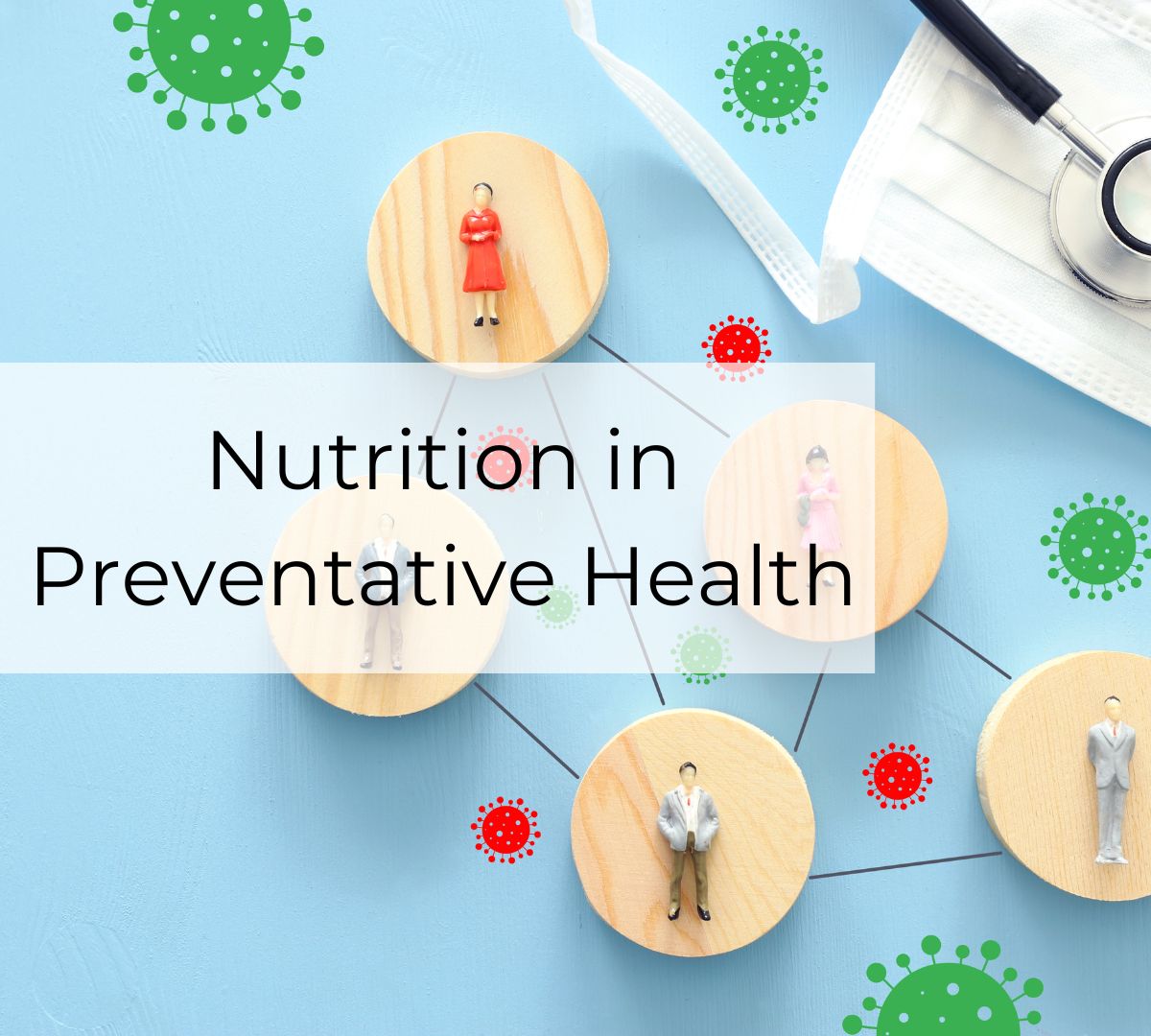The Importance of Nutrition in Disease Prevention
Proper nutrition is one of the most powerful tools for preventing chronic diseases and promoting long-term wellness. A well-balanced diet can act as a shield, protecting against a wide range of conditions such as heart disease, diabetes, and obesity. Healthcare professionals are uniquely positioned to guide patients on the importance of eating well, helping them make informed choices that can significantly reduce the risk of these debilitating diseases.
Scientific research continually supports the connection between nutrition and disease prevention. Diets rich in essential nutrients—found in fruits, vegetables, whole grains, and lean proteins—help strengthen the immune system, combat inflammation, and maintain a healthy weight. These food groups supply the body with vital vitamins, minerals, and antioxidants that promote overall health and stave off chronic illnesses.
The Role of Healthcare Providers
Healthcare providers play a crucial role in educating individuals about the benefits of proper nutrition. By highlighting the positive impact of a balanced diet, they empower patients to make healthier choices. Offering personalized advice on portion control, moderation, and the dangers of excessive intake of saturated fats, trans fats, added sugars, and sodium can significantly improve patient outcomes.
Beyond disease prevention, a healthy diet can enhance overall well-being by boosting mental health, energy levels, and cognitive function. Proper nutrition is not just a medical recommendation but a vital part of living a fuller, more vibrant life. By making nutrition education a core part of patient care, healthcare providers contribute to healthier communities and better long-term health outcomes.
Guidelines for a Healthy Diet
To support disease prevention, healthcare providers can guide patients towards healthier eating habits. Below are some key dietary principles to consider:
Prioritize Fruits and Vegetables
Incorporate a variety of fruits and vegetables into daily meals. These foods are nutrient powerhouses, rich in vitamins, minerals, and antioxidants.
- Leafy greens: Spinach, kale, and broccoli
- Berries: Blueberries, strawberries, and raspberries
- Citrus fruits: Oranges, lemons, and grapefruits
- Colorful vegetables: Carrots, bell peppers, and sweet potatoes
Choose Whole Grains Over Refined Grains
Whole grains offer higher fiber content and promote better digestion. Some nutritious options include:
- Quinoa: A nutrient-dense grain and complete protein
- Oats: Known for lowering cholesterol
- Brown rice: A high-fiber substitute for white rice
- Whole wheat bread: Option for 100% whole wheat varieties
Reduce Saturated and Trans Fats
While fats are often demonized, healthy fats are essential for brain function and heart health. It’s important to limit unhealthy fats and incorporate better options like:
- Avocados: Rich in monounsaturated fats
- Nuts and seeds: Almonds, walnuts, chia seeds
- Olive oil: A heart-healthy oil for cooking
- Fatty fish: Salmon, trout, and sardines, which are rich in omega-3 fatty acids
Limit Added Sugars and Sodium
Excess sugars and sodium are linked to numerous health issues, including heart disease and high blood pressure. To reduce intake:
- Instead of sugary beverages, use herbal teas or water.
- Cook meals at home to control sugar and sodium content
- For taste, substitute herbs and spices for salt.
Nutrients and Their Role in Disease Prevention
Different nutrients contribute uniquely to health. Here’s a look at the impact of key nutrients:
Carbohydrates
The body uses carbohydrates as fuel to keep blood glucose levels stable. Complex carbs, such as whole grains and legumes, support cardiovascular health and reduce diabetes risk.
- Sources: Quinoa, beans, lentils, sweet potatoes, oats
Proteins
Proteins are essential for tissue repair, immune function, and muscle strength. Consuming adequate protein can prevent muscle loss and support bone health.
- Sources: Lean meats (chicken, fish), eggs, legumes, Greek yogurt
Fats
Healthy fats are crucial for brain function, hormone balance, and vitamin absorption. They lower the chance of heart disease as well.
- Sources: Avocados, nuts, olive oil, fatty fish
Vitamins and Minerals
Micronutrients like vitamins and minerals play essential roles in immunity and disease prevention. A diet rich in fruits, vegetables, and whole grains ensures adequate intake.
Physical Activity: A Key Companion to Nutrition
Nutrition and physical activity are partners in promoting long-term health. Regular exercise magnifies the benefits of a healthy diet, further reducing the risk of chronic diseases.
Health Benefits of Physical Activity
- Prevents heart disease, diabetes, and certain cancers
- Supports weight management
- Improves mental wellness by lowering tension and worry
- Strengthens muscles and bones, lowering the risk of osteoporosis
- Improves cardiovascular health through aerobic activities like walking and cycling
Exercise Recommendations
- Aerobic Exercise: Aim for at least 150 minutes of moderate-intensity activity weekly, like brisk walking or shimming
- Strength Training: Include two days of strength exercises targeting major muscle group’s
- Flexibility and Balance: Activities like yoga improve balance and prevent injuries, especially in older adults.
Overcoming Barriers to Healthy Eating
Many people face obstacles to eating well, but healthcare providers can help patients overcome these barriers. Common challenges include:
1. Limited Access to Healthy Food
Collaborate with community organizations to provide resources like farmers’ markets or meal planning tips.
2. Time Constraints
Promote meal prepping and quick, nutritious recipes.
3. Cultural Preferences
Respect cultural traditions while introducing healthier cooking methods.
4. Lack of Nutrition Knowledge
Offer workshops or provide easy-to-understand materials on basic nutrition principles.
Tailoring Nutrition Advice to Individual Needs
Every individual’s nutritional needs are different. Personalization is key, whether a patient is managing hypertension, diabetes, or simply trying to eat better. Physicians can customize recommendations depending on:
- Medical History: Tailor dietary recommendations based on existing health conditions
- Cultural Background: Respect and incorporate cultural food preferences into meal plans
- Individual Goals: Develop nutrition plans that suit personal health objectives
The Path to Long-Term Wellness
Everyday decisions we make are the first step toward preventative health. Through balanced nutrition and regular physical activity, individuals can significantly lower their risk of chronic diseases and improve their overall quality of life. Healthcare providers play a pivotal role in this journey, offering guidance, support, and personalized advice that empowers patients to take control of their health for the long term.



